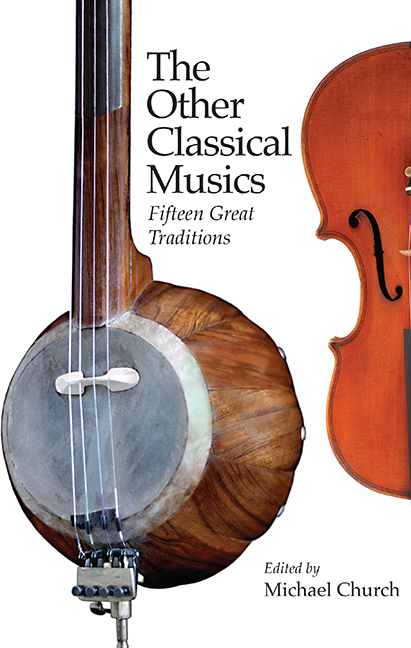Book contents
- Frontmatter
- Dedication
- Contents
- List of Illustrations
- List of Contributors
- Preface and Acknowledgements
- Introduction
- Maps
- 1 Thailand, Laos, Cambodia, Vietnam
- 2 Java
- 3 Japan
- 4 China: The Guqin Zither
- 5 Chinese Opera
- 6 North India
- 7 South India
- 8 Mande Jaliyaa
- 9 North American Jazz
- 10 Europe
- 11 North Africa and the Eastern Mediterranean: Andalusian Music
- 12 The Eastern Arab World
- 13 Turkey
- 14 Iran
- 15 Uzbekistan and Tajikistan
- Notes
- Bibliographies
- Index
13 - Turkey
Published online by Cambridge University Press: 29 May 2021
- Frontmatter
- Dedication
- Contents
- List of Illustrations
- List of Contributors
- Preface and Acknowledgements
- Introduction
- Maps
- 1 Thailand, Laos, Cambodia, Vietnam
- 2 Java
- 3 Japan
- 4 China: The Guqin Zither
- 5 Chinese Opera
- 6 North India
- 7 South India
- 8 Mande Jaliyaa
- 9 North American Jazz
- 10 Europe
- 11 North Africa and the Eastern Mediterranean: Andalusian Music
- 12 The Eastern Arab World
- 13 Turkey
- 14 Iran
- 15 Uzbekistan and Tajikistan
- Notes
- Bibliographies
- Index
Summary
Buoyed by dinner and many glasses of spirits, the guests settle in the living room with sweets, and some open instrument cases. Laughter and the tinkle of metal spoons on tea glasses mingle with the sound of a long-necked lute being tuned. A young woman tries out her zither, while an older man blows tentative tones on his flute. Another young woman balances a short-necked fiddle on her knee: it's tear-drop shaped, and its voice is surprisingly large; a percussionist inspects his frame drum with brass jingles. Now the sound of the flute, breathy and full of overtones, cuts through the talk, its melody moving meditatively upward in free rhythm as the other players provide quiet drones; the fiddle and lute step in, and the three converse together, conclude together. Then instruments and drum begin to move as one, in a piece in a stately tempo. After the final refrain, a guest begins to sing, freely at first, then joined by instruments. Another song follows, then others, the tempo increasing as the listeners sip tea, comment or sing along; a phone rings unanswered. Suddenly the instruments are hushed, playing a steady ostinato as a singer, eyes closed and head to one side, enters high. He begins with sustained notes, then recites on a few pitches with dramatic pauses, trilling and bending the notes with occasional rapid passages. The intense feeling resolves in a final song in quick tempo, with applause at the end, interrupted by a fast postlude. More tea is poured, and the music is submerged once more in conversation.
TURKS use a term adapted from the West, klasik Türk müziği (‘classical Turkish music’), as a catch-all for the musical practices and repertoires of the Ottoman Turkish upper classes over six centuries which continue to the present day. An alternate form, Türk sanat müziği (‘Turkish art music’), is also a Western adaptation. Like ‘classical’ and ‘art’ as used in Europe and North America, the terms are intended in part to convey a sense of high status and cultural depth. This chapter will avoid such distracting associations by substituting a different term: Turkish makam music. ‘Makam’ is a word the Turks inherited from the Arabs (maqam), so by using it to describe this music we are instantly linking it to its regional heritage.
- Type
- Chapter
- Information
- The Other Classical MusicsFifteen Great Traditions, pp. 294 - 319Publisher: Boydell & BrewerPrint publication year: 2015

